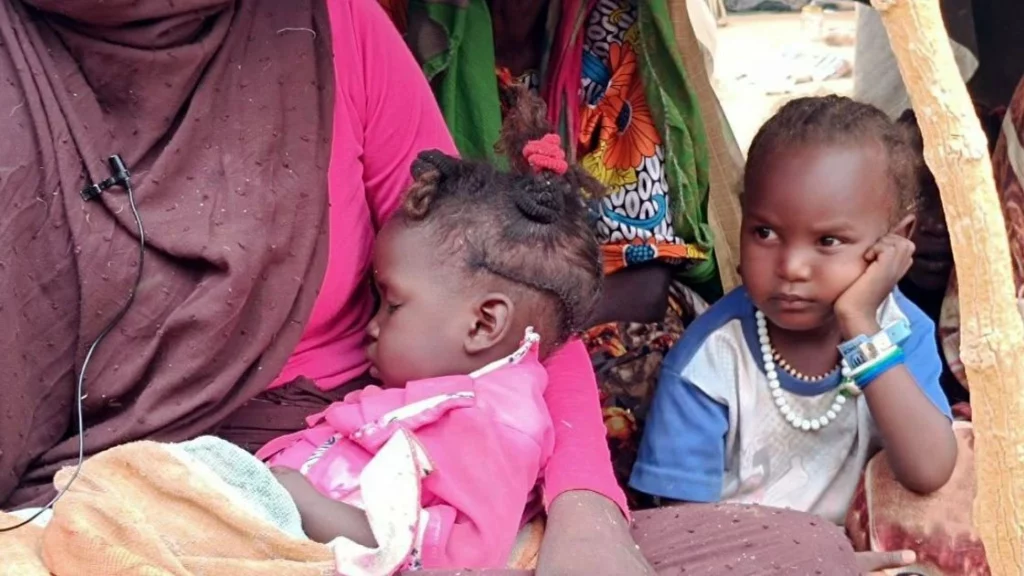Sudanese refugees face dire conditions in Chad

Woman with her children at Adré Camp in eastern Chad (Photo: Majd Holbi / Concern Worldwide)
More than 10,000 Sudanese refugee families who have fled violence in Darfur to Adré camp in eastern Chad are living in dire conditions and lack food, shelter, and healthcare. Sudan’s acting Foreign Affairs Minister Ali El Sadig has called on the UN refugee agency (UNHCR) to urgently respond to the humanitarian needs of refugees and displaced people.
Activist Ibrahim Shammo told Radio Dabanga yesterday that the arrival of a large number of new families is increasing the size of the temporary camp of Adré whilst the lack of food supplies and healthcare facilities persists. Work has been suspended in field clinics amid a scarcity of medicines, including those for chronic diseases.
He stressed that the authorities have not made any promises to refugees to be moved to permanent camps and that a large number of those who have been sent to permanent camps have not been allocated homes. With no basic services, many still live in the open.
Refugee Yousef Juma confirmed this to Radio Dabanga and explained that some of those living in the open have not been registered or counted yet. He also said that refugees in Adré in eastern Chad have not received any food aid for a month and added that a large number of families did not receive any of the little aid that was distributed earlier, as supplies of corn and oil were insufficient.
He feared that their suffering will be exacerbated by the lack of tents and winter clothes with the onset of winter, as well as problems with drinking water.
UNHCR
Acting FA Minister Ali El Sadig has called on the UNHCR to urgently respond to the humanitarian needs of refugees and displaced people and pointed to the deteriorating economic and living conditions faced by host communities in the states in Sudan.
Addressing the opening session of the high-level meeting of the 74th session of the Executive Committee of the High Commissioner for Refugees on Monday, he stressed the need for the international community to provide the necessary support to respond to the critical humanitarian situation, especially as Sudan has been hosting millions of refugees from neighbouring countries and “therefore deserves the favour to be returned”.











 and then
and then